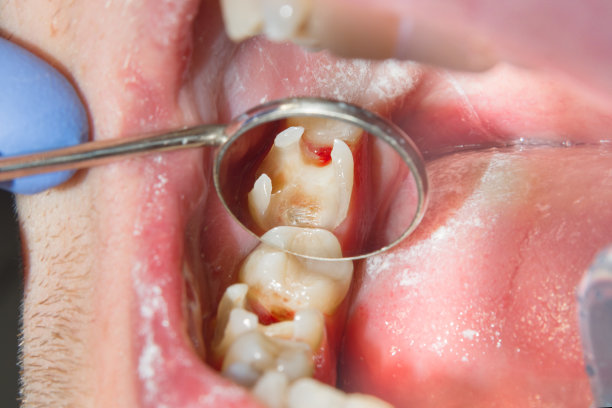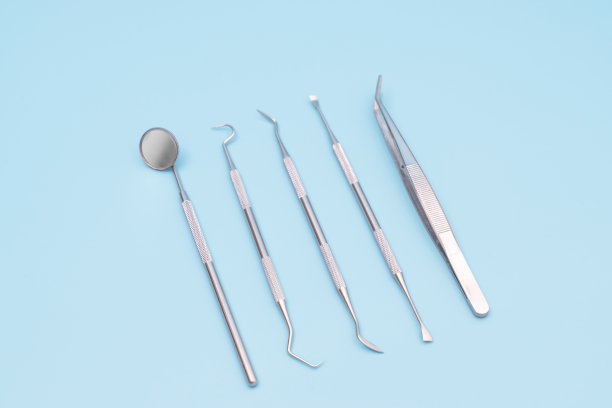Summary: Periodontal disease is a common yet often misunderstood oral health issue that not only affects gums but can also lead to significant systemic health concerns. This article explores the nature of periodontal disease, its impacts on overall health, various treatment options available, and the importance of preventive measures in maintaining oral hygiene. Understanding the risk factors, recognizing early signs, and committing to effective treatments can help individuals enhance their oral health and prevent the progression of periodontal disease. By prioritizing prevention, individuals can safeguard their smiles and overall well-being.
1. Understanding Periodontal Disease

Periodontal disease refers to infections of the structures around the teeth, primarily the gums. It typically begins with gingivitis, an inflammation of the gum tissue, resulting from the accumulation of plaque—a sticky film of bacteria. If left untreated, gingivitis can advance to periodontitis, a more severe form characterized by the destruction of supporting bone and tissue. Understanding the stages and progression of periodontal disease is essential for early diagnosis and intervention.
The risk factors contributing to periodontal disease vary. Poor oral hygiene, smoking, genetics, certain medical conditions (like diabetes), and hormonal changes can all elevate the likelihood of developing periodontal issues. It’s crucial to recognize these risk factors and address them proactively to enhance oral health.
Moreover, periodontal disease can manifest with subtle symptoms that often go unnoticed, such as gum bleeding during brushing, bad breath, and spaces developing between teeth. Educating the public on how to identify these signs can lead to earlier treatment and better oral health outcomes.
2. Impacts of Periodontal Disease
The impacts of periodontal disease can be profound, extending beyond the mouth to affect various aspects of overall health. Research indicates a strong correlation between periodontal disease and systemic conditions such as heart disease, diabetes, and respiratory illnesses. Bacteria from infected gums can enter the bloodstream, potentially leading to significant health issues.
Additionally, periodontal disease can affect nutritional intake. Individuals suffering from advanced gum disease may experience pain and discomfort while chewing, resulting in a restricted diet that lacks essential nutrients. Over time, this can contribute to other health complications and even exacerbate existing health conditions.
Moreover, the psychological impacts of periodontal disease are often overlooked. Patients may experience embarrassment due to bad breath or the appearance of their smile, leading to social withdrawal and decreased quality of life. Addressing the mental health aspects is equally important for a holistic approach to treatment and recovery.
3. Treatment Options Available
Treatment options for periodontal disease vary depending on the severity of the condition. Initially, professional dental cleanings aim to remove plaque and tartar buildup. Good oral hygiene at home, including regular brushing and flossing, complements professional treatment.
If the disease has progressed, more advanced therapies such as scaling and root planing may be necessary. This deep cleaning procedure involves removing bacteria and smoothing the tooth roots to help the gums heal and reattach to the teeth.
In severe cases, surgical interventions may be required. These can include flap surgery to reduce gum pockets or bone grafting procedures to restore lost bone structure. Regular follow-up care and periodontal maintenance visits are crucial for preventing recurrence and ensuring ongoing oral health.
4. Importance of Prevention in Oral Health
Prevention is the cornerstone of maintaining oral health and avoiding periodontal disease. Daily brushing and flossing help to remove plaque before it can harden into tartar, which can lead to gum disease. Incorporating antibacterial mouth rinses can also provide additional protection against harmful bacteria.
Routine dental check-ups are essential for early detection of potential issues. Dental professionals can spot early signs of periodontal disease that patients might miss and can recommend appropriate preventive measures. Regular cleanings can eliminate plaque and tartar that brushing alone may miss.
Moreover, adopting a health-conscious lifestyle plays an important role in prevention. Quitting smoking, managing stress, and maintaining a balanced diet rich in vitamins and minerals can significantly reduce the risk of developing periodontal disease. Education on good oral hygiene practices should start at a young age to instill lifelong habits.
Summary:
Periodontal disease poses significant risks not only to oral health but also to overall well-being. Understanding its nature and impacts, exploring treatment options, and emphasizing preventive care are vital for maintaining good health. By taking proactive steps towards oral hygiene, individuals can enhance their quality of life and minimize the chances of developing periodontal disease.
This article is compiled by Vickong Dental and the content is for reference only.
Vickong Dental
Vickong Dental is a large medical group established in Hong Kong in 2008 by professors from well-known medical universities in Guangdong and Hong Kong, as well as medical doctors from key national '985' universities (including Master's supervisors and senior professors). The chain of branches brings together expert dentists with PhDs and Master's degrees from Hong Kong and Mainland China, committed to providing high-quality dental treatment.
"Vickong Dental Practices the University Motto of 'Healing and Serving Society,' with a Stable Operation for Sixteen Years. It Has Been honored with Hong Kong Enterprise Leaders's Choice,' and is a Global Trusted Implant Center for the Nobel Implant System. Recommended by Hong Kong Metro Broadcast and Guangdong Television, it Serves Customers from Over Thirty Countries and Regions, Gaining the Trust and Favor of Citizens from the Guangdong-Hong Kong-Macau Greater Bay Area and Surrounding Cities.

Thousands of customers' unanimous praise
The most recognized and highly recommended dental service by customers in the Guangdong-Hong Kong-Macau Greater Bay Area
We Ensure You Receive Detailed Care and Attention Here
Hong Kong standards, Shenzhen prices, Your Trusted English-speaking dentists

Vickong Dental Medical-Grade Instrument Disinfection Process
Vickong Dental Medical-Grade Instrument Disinfection Process

Vickong Dental Chain: A Warm and Comfortable Environment for Treatment






Appointment Hours

Q&A
Why choose Vickong Dental?
Vickong Dental practices the university motto 「Medicine to Benefit Society」, with each branch bringing together highly qualified dentists with doctoral and master’s degrees from Hong Kong and the Mainland, and has maintained seventeen years of steady operation。Recipient of 「2024 Hong Kong Enterprise Leaders Brand」, 「2025 Hong Kong Enterprise Leaders Brand」, a Nobel Biocare Global Trusted Implant Center, and a brand recommended by Metro Radio Hong Kong and Guangdong TV。
To date, we have served customers from more than thirty countries and regions,earning exceptionally high word-of-mouth recognition and trusted recommendations from residents across the Guangdong-Hong Kong-Macao Greater Bay Area and surrounding cities
We have eight major branches in Zhuhai、Shenzhen,and a consultation and service assurance center in Hong Kong,so you can book a free consultation at any time for any questions,which is very reassuring.
If I do not accept the quotation after the CT scan, will I be charged??
No! As long as the actual treatment has not started, you will not be charged any fees.
Will there be any additional charges during the treatment process?
No, there won’t be any additional charges. Before treatment begins, we will clearly explain the treatment plan and its corresponding fees. Only after the patient agrees and signs the consent form will we proceed with the dental service.
Can I pay in Hong Kong dollars?
Yes. Vickong Dental accepts payment in Hong Kong dollars. The amount will be converted based on the exchange rate of the day, and the applicable rate will be clearly communicated to you in advance.
Can I reschedule my appointment at any time?
Yes. Please contact us via **WeChat** or **WhatsApp** as early as possible, providing your original appointment time and details, along with your preferred new date and time slot for rescheduling.













